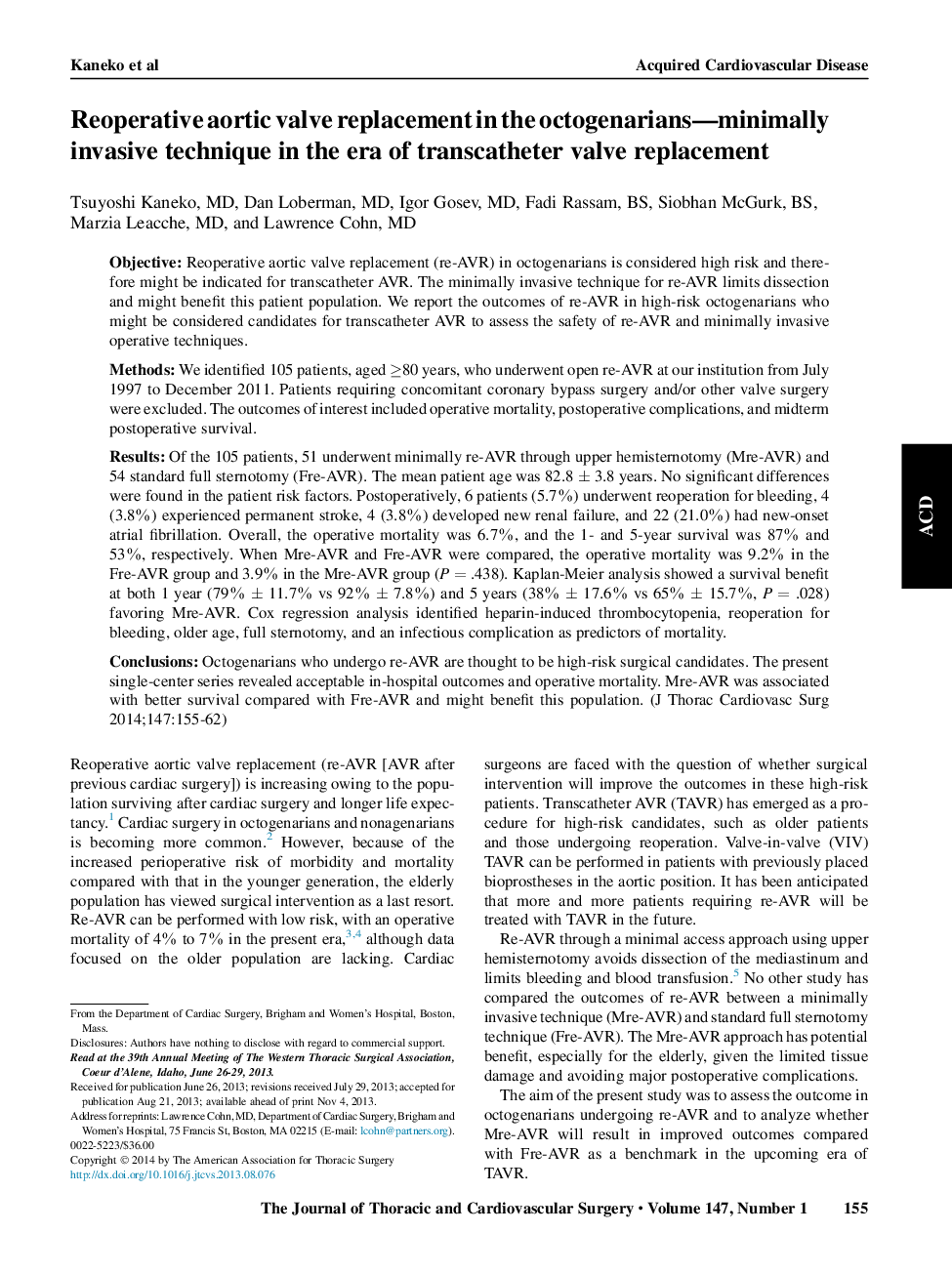| کد مقاله | کد نشریه | سال انتشار | مقاله انگلیسی | نسخه تمام متن |
|---|---|---|---|---|
| 2980576 | 1578615 | 2014 | 8 صفحه PDF | دانلود رایگان |
ObjectiveReoperative aortic valve replacement (re-AVR) in octogenarians is considered high risk and therefore might be indicated for transcatheter AVR. The minimally invasive technique for re-AVR limits dissection and might benefit this patient population. We report the outcomes of re-AVR in high-risk octogenarians who might be considered candidates for transcatheter AVR to assess the safety of re-AVR and minimally invasive operative techniques.MethodsWe identified 105 patients, aged ≥80 years, who underwent open re-AVR at our institution from July 1997 to December 2011. Patients requiring concomitant coronary bypass surgery and/or other valve surgery were excluded. The outcomes of interest included operative mortality, postoperative complications, and midterm postoperative survival.ResultsOf the 105 patients, 51 underwent minimally re-AVR through upper hemisternotomy (Mre-AVR) and 54 standard full sternotomy (Fre-AVR). The mean patient age was 82.8 ± 3.8 years. No significant differences were found in the patient risk factors. Postoperatively, 6 patients (5.7%) underwent reoperation for bleeding, 4 (3.8%) experienced permanent stroke, 4 (3.8%) developed new renal failure, and 22 (21.0%) had new-onset atrial fibrillation. Overall, the operative mortality was 6.7%, and the 1- and 5-year survival was 87% and 53%, respectively. When Mre-AVR and Fre-AVR were compared, the operative mortality was 9.2% in the Fre-AVR group and 3.9% in the Mre-AVR group (P = .438). Kaplan-Meier analysis showed a survival benefit at both 1 year (79% ± 11.7% vs 92% ± 7.8%) and 5 years (38% ± 17.6% vs 65% ± 15.7%, P = .028) favoring Mre-AVR. Cox regression analysis identified heparin-induced thrombocytopenia, reoperation for bleeding, older age, full sternotomy, and an infectious complication as predictors of mortality.ConclusionsOctogenarians who undergo re-AVR are thought to be high-risk surgical candidates. The present single-center series revealed acceptable in-hospital outcomes and operative mortality. Mre-AVR was associated with better survival compared with Fre-AVR and might benefit this population.
Journal: The Journal of Thoracic and Cardiovascular Surgery - Volume 147, Issue 1, January 2014, Pages 155–162
